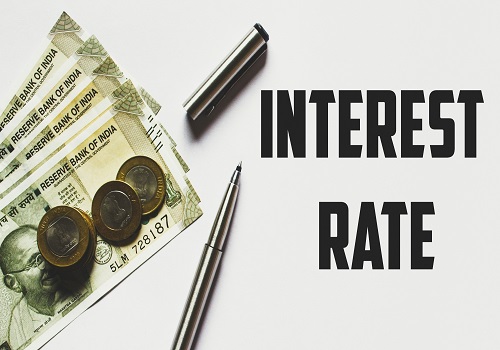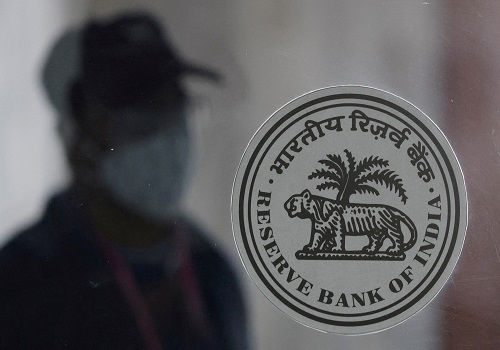After years of getting a raw deal, savers savour interest rate hike

Follow us Now on Telegram ! Get daily 10 - 12 important updates on Business, Finance and Investment. Join our Telegram Channel
For savers, it's a long-awaited win. After years of making virtually nothing on their bank accounts and FDs, savers are finally getting closer to keeping up with inflation. Investors are also getting rewarded with higher interest payments for buying newly issued bonds.
This is a good time to lock into high yields. Vishal Chandiramani, Managing Partner, Products, and COO, TrustPlutus Wealth, said with inflation picking up globally due to reasons such as supply chain bottlenecks, the Russia-Ukraine conflict, and high crude and food prices, global central banks have been forced to raise interest rates to the highest levels in over a decade.
Banks and NBFCs have, as a result, also hiked the rates on FDs and bonds. Additionally, on the domestic front, banks will need to shore up their capitalisation levels to meet the pick-up in credit growth.
This will further contribute to the rates being offered on FDs and bond issuances. This is a good time for investors in fixed income to lock in the high yields as inflation could come off after a few months/quarters and one may begin to get the benefit of a positive real return on their fixed income investment, Chandiramani added.
Bonds offer better returns than fixed deposits.
Rachit Chawla, CEO, Finway FSC, said that fixed deposits are a safe method for investment even during inflation. However, the returns from a fixed deposit or a steady bank account might be significantly less than investments in bonds.
At present, the fixed deposit in a bank might result into a return of around 5.5 per cent, most alike how post office deposit can fetch an annual return of 6.7 per cent. Although strategic investments in bonds, especially government bonds, can be fruitful even during economic slowdown.
He said one way to invest effectively in a bond is by holding it till maturity date and collect interest amount on them.
Another way to effectively save from bonds is by strategically selling them at the right time at a higher cost than the initial amount invested in it. The key thing to remember is that interest rates on bonds tends to have an inverse relationship and if the interest rates increase prices of the bond is more likely to fall as its coupon is less valuable than the new bonds. Advantages of investing in bonds even during inflation include safety, predictable income stream, and diversification.
Sandeep Bagla, CEO, TRUST MF, said interest rates are meant to preserve the purchasing power of the saver. If prices are rising at a certain rate, which is called the inflation rate, interest rates should typically be higher than the inflation rate. Savers are adequately compensated against inflation and the savings so generated can be chanelised into productive sectors thereby maintaining a healthy economic growth rate.
At the onset of Covid19, it was feared that economies would slow down drastically due to fall in production, earnings, spending, sentiment etc. Central Bankers in a desperate bid to keep economies running, flooded the financial system with liquidity and cut rates below inflation.
The celebratory moment for Indian savers may arrive.
Bagla said savers got a raw deal as their savings earned lower than inflation, and real rates turned negative. High liquidity, supply side shocks and tight labour markets led to a surge in global inflation. Central banks had to quickly raise rates and the Indian saver who was earning 3-4 per cent on its savings is now getting market rates closer to 7-7.25 per cent.
This could be a celebratory moment for the Indian saver, provided inflation comes down to 5-5.50 per cent, he added.
If inflation remains high, then the saver will earn a high nominal rate but the real rate of return will remain low. Interest rates have to be viewed in conjunction with inflation as it is important the interest rates are higher the expected inflation to enable the saver generated positive real returns, he said.
Manoj Kumar Dalmia, Founder and Director, Proficient Equities, said that as interest rates rise and the yield on bonds rise, investors are receiving better rates on recently issued bonds.
Amit Gupta, MD, SAG Infotech, said some of the best investments include the finest-quality corporate bonds, PSU and bank bonds, and government bonds of the greatest calibre.
"What I suggest, is if you are an investor who can afford 2-3 years of holding period. You should definitely increase your exposure to dynamic bond funds. Because they might give you a chance to gain significantly from rising yields on medium and long-term bonds.
"Also, the livelihood will be better in terms of volatile expenses and making any sudden decisions on spending. What makes dynamic bond funds a better investment for the long term is the freedom to adjust portfolio positioning in response to changing market conditions in this volatile situation," he added.
In this changing environment, floating-rate funds and low-maturity funds are probably wise choices. Any actions taken by the RBI to pump liquidity should be advantageous for these funds, he said.










Tag News

Monthly Debt Market Update, September 2023: CareEdge Ratings





 320-x-100_uti_gold.jpg" alt="Advertisement">
320-x-100_uti_gold.jpg" alt="Advertisement">








